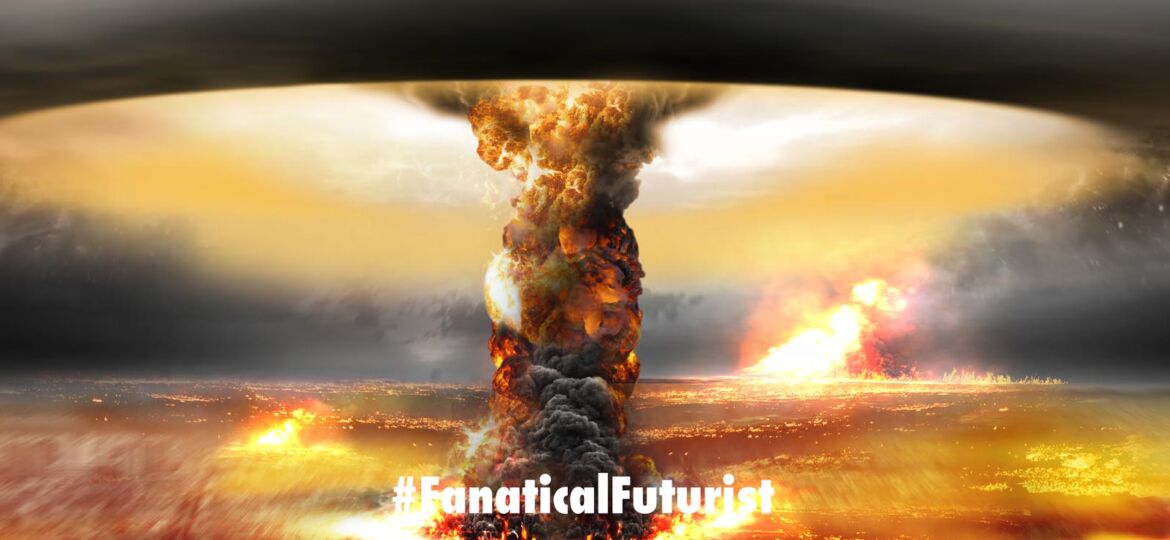
WHY THIS MATTERS IN BRIEF
In the race for AI dominance Google released BARD to compete with ChatGPT but major errors in the demo caused Google’s share price to plummet.
 Love the Exponential Future? Join our XPotential Community, future proof yourself with courses from XPotential University, read about exponential tech and trends, connect, watch a keynote, or browse my blog.
Love the Exponential Future? Join our XPotential Community, future proof yourself with courses from XPotential University, read about exponential tech and trends, connect, watch a keynote, or browse my blog.
After OpenAI’s ChatGPT went viral everyone started asking whether it could be a “Google Killer” which funnily enough sent Google’s management teams into a spin so, after a few furious months of activity, Google on Monday unveiled a new chatbot tool dubbed “Bard” in an apparent bid to compete with the viral success of ChatGPT.
Sundar Pichai, CEO of Google and parent company Alphabet, said in a blog post that Bard will be opened up to “trusted testers,” with plans to make it available to the public “in the coming weeks.”
Like ChatGPT, which was released publicly in late November by AI research company OpenAI, Bard is built on a large language model. These models are trained on vast troves of data online in order to generate compelling responses to user prompts.
The Future of AI, by keynote Matthew Griffin
“Bard seeks to combine the breadth of the world’s knowledge with the power, intelligence and creativity of our large language models,” Pichai wrote. “It draws on information from the web to provide fresh, high-quality responses.”
The announcement comes as Google’s core product – online search – is widely thought to be facing its most significant disruptive risk in years. In the two months since it launched to the public, ChatGPT has been used to generate books, coursework, scripts, programs, and more, and to answer some questions one might previously have searched for on Google.
The immense attention on ChatGPT has reportedly prompted Google’s management to declare a “code red” situation for its search business. In a tweet last year, Paul Buchheit, one of the creators of Gmail, forewarned that Google “may be only a year or two away from total disruption” due to the rise of AI.
Microsoft, which has confirmed plans to invest billions OpenAI, has already said it would incorporate the tool into some of its products – and it is rumored to be planning to integrate it into its search engine, Bing. Microsoft on Tuesday is set to hold a news event at its Washington headquarters, the topic of which has yet to be announced. Microsoft publicly announced the event shortly after Google’s AI news dropped on Monday.
The underlying technology that supports Bard has been around for some time, though not widely available to the public. Google unveiled its Language Model for Dialogue Applications (or LaMDA) some two years ago, and said Monday that this technology will power Bard. LaMDA made headlines late last year when a former Google engineer claimed the chatbot was “sentient.” His claims were widely criticized in the AI community.
In the post Monday, Google offered the example of a user asking Bard to explain new discoveries made by NASA’s James Webb Space Telescope in a way that a 9-year-old might find interesting. Bard responds with conversational bullet-points. The first one reads: “In 2023, The JWST spotted a number of galaxies nicknamed ‘green peas.’ They were given this name because they are small, round, and green, like peas.”
It then went on to respond with a few bullet points, including the claim that the telescope took the very first pictures of “exoplanets,” or planets outside of earth’s solar system.
“These discoveries can spark a child’s imagination about the infinite wonders of the universe,” Bard says.
Which was wrong – and boom just like that the mistake caused Google’s stock to crash by over $170 Billion in a few days.
Bard can be used to plan a friend’s baby shower, compare two Oscar-nominated movies or get lunch ideas based on what’s in your fridge, according to the post from Google.
Pichai also said Monday that AI-powered tools will soon begin rolling out on Google’s flagship Search tool.
“Soon, you’ll see AI-powered features in Search that distill complex information and multiple perspectives into easy-to-digest formats, so you can quickly understand the big picture and learn more from the web,” Pichai wrote, “whether that’s seeking out additional perspectives, like blogs from people who play both piano and guitar, or going deeper on a related topic, like steps to get started as a beginner.”
If Google does move more in the direction of incorporating an AI chatbot tool into search, it could come with some risks. Because these tools are trained on data online, experts have noted they have the potential to perpetuate biases and spread misinformation.
“It’s critical,” Pichai wrote in his post, “that we bring experiences rooted in these models to the world in a bold and responsible way.”

















[…] that they’re “readying even more sophisticated adversarial tools based on Generative AI and Google’s Bard technology” — one of which will leverage a Large Language Model (LLM) that uses as its knowledge base the […]
[…] far I’ve seen lots of ways in which Artificial Intelligence’s (AI) such as Google’s BARD and OpenAI’s GPT-4 can be hacked which even includes using human psychology to crack them and get […]
[…] people hearing about AI concerns, there’s a disconnect between today’s chatbots like ChatGPT, Bard and Claude 2, and the potential for a world-dominating evil super intelligent AI. So just how do we […]
[…] AI tools like OpenAI’s ChatGPT and Google’s Bard, among many others, are so revolutionary that experts are certain that even at this […]